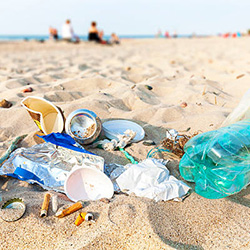| Fish |
🐠 How Pollution Affects Fish 🌍
Fish have thrived in our rivers, lakes, and oceans for millions of years, but today, pollution threatens their survival. From plastic waste to toxic chemicals, human activities are disrupting aquatic ecosystems. Let’s take a closer look at how pollution is impacting fish and why we should care.
🛍️ Plastic Pollution
Fish often mistake microplastics for food, leading to severe health consequences. Ingesting plastic can cause digestive blockages, internal injuries, and starvation. Additionally, plastic waste disrupts habitats and can entangle fish, restricting their movement and making survival difficult.
☣️ Chemical Pollution
Toxic chemicals from pesticides, fertilizers, and industrial waste seep into waterways, poisoning the environment fish depend on. These pollutants weaken their immune systems, disrupt reproduction, and cause deformities. Heavy metals like mercury accumulate in fish, posing risks not only to them but also to humans who consume contaminated seafood.
🛢️ Oil Spills
Oil spills are catastrophic for fish, contaminating their gills and suffocating them. The toxic compounds in oil also damage fish eggs and larvae, leading to long-term population declines. Even fish that survive exposure to oil may suffer from reduced growth, disease, and reproductive issues.
💡 Light Pollution
Artificial lights near bodies of water can interfere with fish behavior, affecting feeding, migration, and breeding patterns. Some fish rely on natural light cues to navigate, and excessive artificial lighting can disorient them, leading to increased predation and difficulty finding food.
🔊 Noise Pollution
Underwater noise from boat traffic, sonar, and industrial activity disrupts fish communication and navigation. Many species rely on sound to locate prey, avoid predators, and find mates. Excessive noise pollution can cause stress, hearing damage, and behavioral changes that threaten their survival.
🌡️ Climate Change & Ocean Pollution
As pollution drives climate change, fish are feeling the effects in warming waters and habitat destruction. Rising temperatures can disrupt breeding cycles and force fish to migrate to unfamiliar areas, where they may struggle to survive. Additionally, coral reef degradation and ocean acidification threaten the food sources of many fish species.
